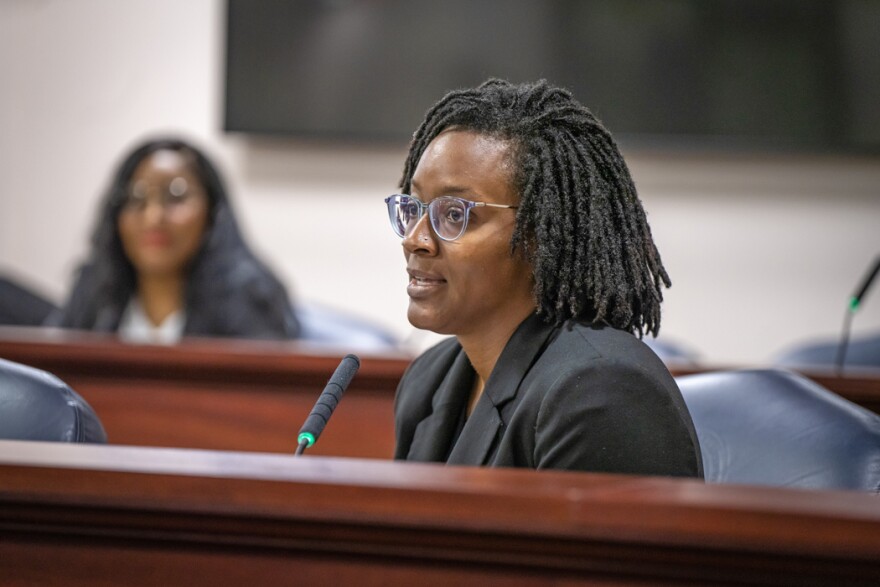With Gov. Ron DeSantis ratcheting up attention on school-board races, the Florida House on Friday passed a proposal aimed at allowing school-board candidates to run with party labels.
The Republican-controlled House voted 79-34 along straight party lines to approve a proposed constitutional amendment (HJR 31) that seeks to hold partisan school-board elections. If ultimately approved by voters, the amendment would scrap a current requirement that the races be non-partisan.
Rep. Chase Tramont, R-Port Orange, said the proposal is about “transparency, period, end of story.” He said party politics already play a role in school-board races and that voters want to know about candidates’ party affiliations.
ALSO READ: In Sarasota County, a school board member is a target of anti-gay rhetoric at public meetings
“The fact of that matter is, let’s face it, these races are already partisan,” Tramont said.
But Democrats argued the proposal would unnecessarily inject partisanship into school-board races. Rep. Angie Nixon, D-Jacksonville, said she is a parent of three children in public schools and that lawmakers shouldn’t “politicize” school boards.
“I don’t care about your party affiliation on a school board,” Nixon said. “I care that you care about the kids, that you’re going to do right by the kids.”
In an unusual move, DeSantis last year endorsed a slate of about 30 school-board candidates as he tried to elect conservatives in various parts of the state. Most of the DeSantis-endorsed candidates won.
GOP lawmakers this year have moved forward with trying to revamp school-board elections. In addition to supporting a shift to partisan elections, the House on Friday passed a bill that would change residency requirements for school-board candidates.
Under current law, candidates have to live in the districts they are seeking to represent at the time they qualify to run. The bill (HB 411) would require candidates to live in the districts at the time they assume office.
Supporters have argued the bill would bring school-board races in line with residency requirements for other types of office, including legislative seats. But Democrats contend it could lead to outsiders getting elected to school boards.
“I think the community deserves to elect folks that come from their community,” Nixon said Friday. “This bill opens up our borders, and it opens up our school boards to be politicized and just merely stepping stones for folks who are opportunists and want to have a chance to win an easy election or buy an election.”
But bill sponsor Kevin Steele, R-Dade City, said “voters are the backstop for this bill.”
“People can move across the street or across the city,” Steele said. “At the end of the day, we are a community, the entire state is a community, the entire nation is a community.”
Nearing the halfway point of the 60-day legislative session, the Senate has given initial approvals to the proposed school-board changes. The Senate version of the partisan elections proposal (SJR 94) has been approved by two committees, and a bill (SB 444) to change candidate residency requirements has cleared one committee.
If it emerges from the Legislature, the proposed constitutional amendment on partisan elections would go on the 2024 ballot, where it would require 60 percent voter approval to pass. It would take effect with the 2026 elections.
Historically, school-board candidates ran with partisan labels, but voters in 1998 passed a constitutional amendment to shift to non-partisan races.




